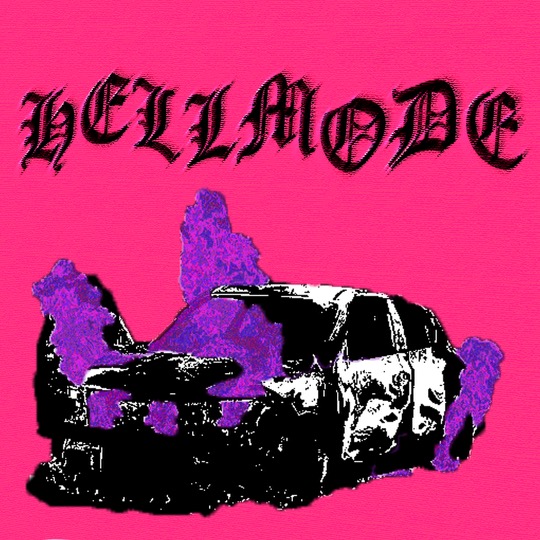Sometimes life hits you with a freight train. Sometimes that freight train has 10 more subsequent freight trains with flaming spikes and a melting portrait of your parents fighting hoisted up like a “Mad Max” action sequence.
The first article I ever made for KentWired was “10 songs that saved my life,” and I finished that vast piece with a song that was quite recent in my listening history, that being the song “HEALMODE” by Jeff Rosenstock. I cited Rosenstock as being one of my favorite artists of all time and that still rings true to this day. In fact, that’s an understatement.
There are plenty of artists who changed my life with something incredible. There are others who alter the trajectory of my emotional state for months or even years to come.
Jeff Rosenstock has the privilege of not only being somebody who’s changed my life with his music, but also has time and time again pulled me out of the stinking rut that life has a tendency of beating us all into.
Not to say his music is joyous and triumphant all of the time. In fact, a good chunk of his music very frankly lays out scenes of crippling anxiety and depression in ways that are just as practical as they are inescapable.
Something that is very often present though, especially in the album I’ve chosen to review today, is a persevering lucidity in face of such pressures. “HELLMODE” is the first Rosenstock album that I had to actively wait for, as before its release I was a relatively new fan who was listening to preexisting songs/albums.
As I absorbed every song that was released during the album rollout, I had no idea how much of a lasting impact this particular album would have on me. To me, “HELLMODE” represents an acknowledgement of trauma and self-destructive habits and clinging for dear life to what’s important to you anyway.
The opening song “WILL U STILL U” lays out the horrifying question, do we still deserve to be loved in spite of our ability to hurt other people?
I will genuinely never forget the first time I listened to this song. The drilling drum beat guiding Rosenstock’s blown-out voice took me on a trip that I get to relive every time I spin the track in my free time. The climax of the song contrasts this desperate nature with a breakdown that feels almost joyous that I feel sets the tone for the whole album. Without completely dissecting this song alone, I will simply share the line that I scream with every ounce of my lungs every chance I get. It’s a desperate cry to be saved from a self-inflicted blindness that clouds a love that is so much more important than our ego.
“Oh, would you transcend time and space, so you can punch my stupid face and knock some sense into my head?”
When the album isn’t dissecting personal anxieties, it’s also facing the political unrest that every citizen has to come to terms with on a daily basis. With songs like “HEAD,” it tackles both at the same time, sharing anecdotes of our increasingly depressing and chaotic socioeconomic climate and how that can contribute to a preexisting “bomb inside [our] head[s]” that we can never be able to ignore.
“FUTURE IS DUMB,” “SOFT LIVING” and “I WANNA BE WRONG” also play around with these themes of life being more and more difficult because of not only outside political factors, but also an innate self-destructive mentality that causes living to be an anxiety-ridden and draining process. A key factor that some of these songs play with, however, is the decision to recenter on what’s actually important. Why do we let ourselves be controlled by things that we can’t change?
“So what if you die? So what if you don’t die? So what if you realize we ran out of time? The world doesn’t owe you.”
This album is about healing. Three songs that will be important to me all my life are “DOUBT,” “HEALMODE” and “GRAVEYARD SONG” because they all represent a rejection of what we let constantly kill us.
The first song is practically a mantra against self-doubt and how it consistently forces us to hate ourselves and our problems. It’s violent in its approach, but almost cleansing in how it repeats the refrain, “You gotta chill out with the doubt. Slow motion breakdown,” because that’s really what anxiety is. It’s a breakdown stretched across days, weeks, months and years until we’re a shriveled husk and it’s completely unnecessary.
“HEALMODE” is a pleasant reprieve from harsh guitar and drum beats and into a more soothing reminder of love. I talked extensively about this song in my first article, so I won’t repeat too much, but for me it stands as a sobering oasis from anxiety and a call to action to appreciate the ones you love. It’s beautifully poetic and speaks to me on a level that makes me want to sob just thinking about it.
“When it’s gone the air will clear and there’ll be so much more to see.”
“GRAVEYARD SONG” serves as a brutally honest declaration that there are simply some things that “need to die.” You can’t be expected to cater to every negative idea and toxic presence that actively harms your day to day life. It highlights how easy it is to be overwhelmed by redundant life patterns as well as the people who actively take part in actions that are frankly destroying the world.
Just look at the political landscape, not even just in this country. Do you find it that difficult to lose hope in everything? But these things don’t need to control us. Jeff Rosenstock’s merchandise for this album frequently has the tagline “Earth will survive you.” Despite all the terrible mess, we need to be honest with ourselves and not fall into the trap of pessimism. We’re gonna make it.
“3 SUMMERS” is the final song on the album, and I think it beautifully summarizes all of the themes talked about throughout, and it takes the time to ponder a potential way out to all of these problems. It’s a seven-minute showstopper that very clearly demonstrates Rosenstock’s ability to be infectiously catchy while also being taken seriously with the sometimes dark subject matter that he chooses to face.
It dissects his own hypocrisy as a privileged artist who has managed to find substantial success, as well as his inability to find a way to meld with the real world when his brain is constantly on the fritz. The song acknowledges the imperfect state of the world and his place in it, while also finding peace in simple things like the beautiful people and imagery that we get to explore by the right of being human. Even though our attempt to meld with these things and be less afraid of them can be the source of so much of our pain, it would also be pointless to give up on them.
The final section of this epic is the statement, “I’m different than before, and you can’t help me anymore,” which could be taken as a defeatist statement to end the album on, especially since “anymore” is the refrain that repeats until the song fades out, but this isn’t how the line should be taken. The overall point of the song is that Rosenstock has tried fighting his depression and anxiety as well as waiting it out for “three whole summers.” But what’s realized here is that there’s nothing to solve, but rather the need to accept yourself and keep moving forward. It’s also an acceptance of responsibility.
Rosenstock recognizes that he can’t be “fixed,” especially by others. “You can’t help me anymore” reads to me more like, “don’t worry about me, I’ll keep on going and I’ll be fine.” It’s nobody else’s job to fix us and it’s likely more of an issue to view ourselves as a problem in the first place. It’s the decision to repeat this statement indefinitely in lieu of this fact that further convinces me that this is a persevering statement, not a defeatist one.
I barely even touched on the actual musical elements of the album, but the lyrics are so damn important to me that I wouldn’t have written this review any other way, besides making it even longer. The album has only been out for around six months now, but it’s solidified in my mind as one of my favorite albums of all time.
From the associations I have with singing the whole album with my close friends and loving partner to remembering what it did for me when I’ve felt helplessly alone and afraid, I will never forget what this album did for me. I’ll be seeing Jeff Rosenstock live next month while he’s touring this very album and I imagine that’ll further be a core memory.
After writing this review, I believe I’m going to review albums more often now, because music is one of the most important things to me. I think it grounds me in a way that no other way of writing has done before. I may not always get so deep or introspective with the lyrics and my interpretations, but this is what I’m passionate about, so I expect this whole “AJ’s Album Reviews” thing to be something that sticks at least for now. I hope that’s okay with you all.
Always remember love. Until next time.
Anthony Morris is an opinion writer. Contact them at [email protected].







